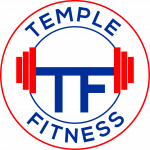Gym Terms
Gym culture can seem overwhelming for beginners, especially with the variety of terms and slang used by regular gym-goers. Familiarising yourself with these terms can help you communicate more effectively and feel more confident in your workouts. In this article, we’ll go over some of the most common gym terms, including the concept of reps in reserve.
Repetitions (Reps): The number of times you perform a specific exercise, such as lifting a weight up and down or completing a full push-up.
Sets: A group of repetitions performed consecutively, typically with a short rest period in between.
Cardio: Exercises that improve cardiovascular health, such as running, cycling, or using the elliptical machine.
Strength Training: Exercises that focus on building muscle strength, such as weightlifting or bodyweight exercises.
Compound Exercises: Exercises that work multiple joints and muscle groups at once, such as squats, bench presses, or deadlifts.
Isolation Exercises: Target a single joint movement and specific muscle or muscle group, such as bicep curls or leg extensions.
Reps in Reserve (RIR): A concept used to gauge the intensity of your workout, reps in reserve refers to the number of reps you could have performed beyond your current set. For example, if you could have performed three more reps but stopped at 10, your RIR would be three.
Rep Range: The number of repetitions you perform per set. Different rep ranges target different muscle fibres and can have varying effects on strength and muscle growth.
Rest Period: The time you take to rest between sets, which can vary based on your goals and the exercise you’re performing.
Superset: Undertaking two different exercises back-to-back without resting in between. This can increase the intensity of your workout and save time.
Progressive Overload: Gradually increase the weight or intensity of your workouts over time to challenge your muscles and continue making progress. Your current workout should always be better than your last workout!
Spotter: A person who assists you during a weightlifting exercise, typically by helping you lift the weight or taking it from you if you can’t complete the lift.
Another important term to be aware of when it comes to gym workouts is failure. In weightlifting, failure refers to the point at which you can no longer complete a rep with proper form. For example, you have reached failure if you’re doing bicep curls and can no longer lift the weight without swinging your body.
While reaching failure can be a sign that you’re pushing yourself and challenging your muscles, it’s important to use proper form and avoid overexertion or injury. This is where the concept of reps in reserve comes in handy. By stopping a few reps short of failure and leaving some reps in reserve, you can maintain proper form and gradually increase the intensity of your workouts over time.

Another term that may come up in gym conversations is “doms,” or Delayed Onset Muscle Soreness. This refers to the soreness or stiffness you may feel in your muscles after a workout, typically 24 to 48 hours later. While doms can be uncomfortable, it’s a normal and expected part of the muscle-building process and typically fades as your muscles adapt to the workout. It occurs because your muscles are doing something new and are being worked in a way they are not used to.
Understanding these gym terms can help you feel more comfortable in the gym and better understand the exercises you’re performing. Incorporating the concept of reps in reserve can also help you adjust your workout intensity based on your goals and fitness level. If you’re ever unsure about a term or exercise, don’t hesitate to ask a coach or gym staff member for clarification.
Finally, it’s important to be aware of proper gym etiquette when using shared equipment or spaces. This includes wiping down equipment after use, respecting others’ personal space and time, and avoiding loud or distracting behaviour. Being courteous and respectful can help create a positive gym environment and make your workouts more enjoyable. If you are brand new and thinking about going to a gym, choose one that has your interest at heart. If you haven’t already, read of our article “So You’re Thinking About Joining A Gym.”
Understanding common gym terms can help you communicate more effectively and feel more confident in your workouts. The concept of reps in reserve can help you adjust your workout intensity, while proper form and gym etiquette are important for maintaining a safe and positive workout environment. With these tips in mind, you can make the most out of your gym experience and achieve your fitness goals. Happy lifting!
